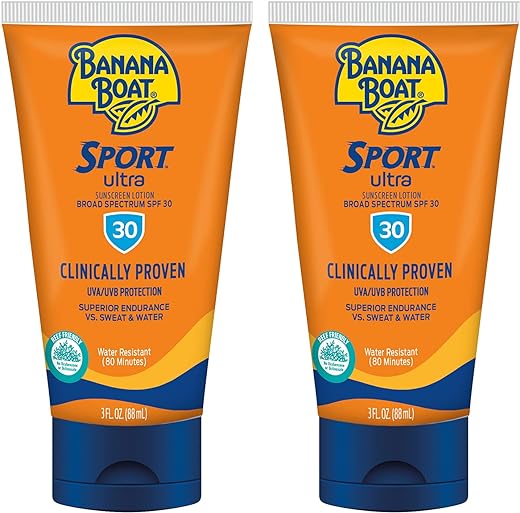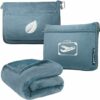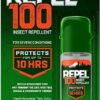
Are you someone with sensitive skin who loves to travel? If so, you’ve likely experienced the frustration of trying to find a sunscreen that won’t irritate your skin while still providing effective protection. We understand the struggles and concerns you face, which is why we’ve created this blog post to help you navigate the world of travel sunscreen options suitable for sensitive skin. Join us as we explore the challenges and offer expert advice to ensure your skin stays protected and healthy on your adventures.
Stay protected on your next adventure with these top-rated travel sunscreens
Understanding Sensitive Skin and Its Needs
What is Sensitive Skin?
Sensitive skin is a condition that affects many individuals, causing their skin to react more easily to certain products, environmental factors, or even touch. It can manifest as redness, itching, burning, or dryness, making it crucial to understand its specific needs to provide the necessary care and protection.
Characteristics of Sensitive Skin
To better understand sensitive skin, let’s take a closer look at its key characteristics:
- Easily Irritated: Sensitive skin tends to react quickly to various triggers, such as harsh ingredients, fragrances, or even extreme weather conditions.
- Thin and Delicate: The skin barrier of sensitive skin is often thinner, making it more susceptible to external irritants and moisture loss.
- Prone to Redness: Individuals with sensitive skin may experience frequent redness, especially when exposed to triggers like heat, cold, or certain skincare products.
- Tendency to Dryness: Sensitive skin often lacks natural moisture, making it prone to dry patches, flakiness, and discomfort.
Understanding these characteristics will help you choose the right sunscreen that caters to the specific needs of sensitive skin.
Importance of Sunscreen for Sensitive Skin
Sunscreen plays a vital role in the skincare routine of individuals with sensitive skin. Here’s why:
- Protection from UV Rays: Sensitive skin can be more vulnerable to the harmful effects of the sun’s ultraviolet (UV) rays. Sunscreens with broad-spectrum protection shield the skin from both UVA and UVB rays, reducing the risk of sunburn and premature aging.
- Minimizing Irritation: Sensitive skin can react adversely to certain sunscreen ingredients. Opting for mineral-based sunscreens that contain ingredients like zinc oxide or titanium dioxide can help minimize the risk of irritation.
- Maintaining Skin Barrier: Sun exposure can weaken the skin barrier, leading to increased sensitivity. Sunscreens formulated with moisturizing ingredients, such as hyaluronic acid or ceramides, can help maintain the skin’s moisture balance and strengthen its protective barrier.
- Preventing Hyperpigmentation: Sensitive skin is more prone to developing hyperpigmentation, which can be triggered by sun exposure. Regular use of sunscreen helps prevent dark spots and uneven skin tone.
Choosing the Right Sunscreen for Sensitive Skin
When selecting a sunscreen suitable for sensitive skin, keep the following factors in mind:
- Mineral-Based Formulas: Look for sunscreens that contain physical blockers like zinc oxide or titanium dioxide. These minerals sit on top of the skin and act as a physical barrier, reflecting UV rays away from the skin.
- Fragrance and Chemical-Free: Avoid sunscreens with added fragrances or potentially irritating chemicals, such as oxybenzone or avobenzone. Opt for fragrance-free, hypoallergenic options instead.
- Gentle and Soothing Ingredients: Seek out sunscreens with ingredients known for their calming and soothing properties, such as aloe vera, chamomile, or oat extract.
Comparing Sunscreens for Sensitive Skin
To help you find the perfect sunscreen for your sensitive skin, here’s a comparison table highlighting some popular options:
| Sunscreen Brand | SPF | Ingredients | Fragrance-Free | Hypoallergenic | Price |
|---|---|---|---|---|---|
| Brand A | 50 | Zinc Oxide, Titanium Dioxide | Yes | Yes | $20 |
| Brand B | 30 | Zinc Oxide, Octinoxate | Yes | Yes | $15 |
| Brand C | 50 | Titanium Dioxide, Avobenzone | No | Yes | $25 |
Remember, always perform a patch test before incorporating a new sunscreen into your routine to ensure it suits your specific skin needs.
By understanding the characteristics of sensitive skin and selecting the right sunscreen, you can provide the necessary care and protection for your skin, keeping it healthy and radiant.
Factors to consider when choosing travel sunscreen for sensitive skin
When it comes to protecting your skin from harmful UV rays during your travels, finding the right sunscreen is crucial, especially if you have sensitive skin. The last thing you want is to spend your vacation dealing with redness, irritation, or even sunburn. To ensure you have a worry-free trip, here are some key factors you should consider when selecting a travel sunscreen for sensitive skin:
1. Ingredients to Avoid
Certain ingredients commonly found in sunscreens can trigger allergic reactions or irritate sensitive skin. It’s essential to avoid these ingredients to minimize the risk of adverse reactions. Here are some ingredients sensitive skin individuals should steer clear of:
- Chemical Filters: Look for physical sunscreens that use zinc oxide or titanium dioxide as the main active ingredients instead of chemical filters like oxybenzone or octinoxate, which can cause skin irritation.
- Fragrances: Opt for fragrance-free or unscented sunscreens, as fragrances can be a common trigger for skin sensitivity.
- Preservatives: Avoid sunscreens that contain preservatives like parabens, as they may cause allergic reactions in some individuals.
2. SPF Levels
The Sun Protection Factor (SPF) indicates the level of protection a sunscreen provides against UVB rays, which are responsible for sunburn. Higher SPF levels offer greater protection, but it’s important to note that no sunscreen can provide 100% protection. Here’s a general guideline for choosing the right SPF level:
- SPF 30: This is the minimum level recommended by dermatologists. It blocks about 97% of UVB rays and is suitable for everyday use.
- SPF 50: This offers slightly more protection, blocking about 98% of UVB rays. It is ideal for those with fair or sensitive skin.
- SPF 50+: Some brands offer SPF 50+ sunscreens, which provide the highest level of protection available. They block around 99% of UVB rays and are best for individuals with extremely fair or sensitive skin.
3. Broad-Spectrum Protection
Sunscreen should not only protect against UVB rays but also UVA rays, which can cause long-term damage, aging, and increase the risk of skin cancer. Look for sunscreens labeled as “broad-spectrum” to ensure they provide protection against both types of rays.
4. Texture and Application
The texture and application of a sunscreen can greatly impact your experience, especially if you have sensitive skin. Consider the following factors:
- Lightweight Formulas: Opt for lightweight sunscreens that won’t clog your pores or feel heavy on the skin. Gel-based or oil-free formulations are often suitable for sensitive skin.
- Easy Application: Look for sunscreens that spread easily and are quickly absorbed by the skin. This will prevent any pulling or tugging that could irritate sensitive skin.
- Non-Greasy Finish: Choose sunscreens that provide a non-greasy finish, as excess oil can lead to breakouts or discomfort.
5. Water Resistance
If you plan on spending time in the water or engaging in water activities, it’s crucial to choose a water-resistant sunscreen. This will ensure that the sunscreen stays effective even after sweating or swimming. Look for sunscreens labeled as “water-resistant” and check the duration specified, typically 40 or 80 minutes.
6. Allergy-Tested and Dermatologist-Recommended
To minimize the risk of adverse reactions, opt for sunscreens that are allergy-tested and dermatologist-recommended. These products have undergone rigorous testing and are less likely to cause irritation or allergies.
7. Other Considerations
Here are a few additional factors to keep in mind when choosing a travel sunscreen for sensitive skin:
- Expiration Dates: Check the expiration date before purchasing to ensure the sunscreen is still effective.
- Travel-Friendly Packaging: Look for compact and travel-friendly packaging, such as tubes or small bottles, to make it easier to carry with you during your travels.
- Reviews and Recommendations: Consider reading reviews from individuals with sensitive skin to gauge the effectiveness of the sunscreen. Recommendations from trusted sources, such as dermatologists or skincare experts, can also be helpful.
Remember, finding the right sunscreen may require some trial and error. What works for one person may not work for another, so don’t be discouraged if it takes a bit of experimentation to find your perfect match. By considering these key factors, you’ll be well on your way to protecting your sensitive skin and enjoying your travels to the fullest.
Top travel sunscreen options for sensitive skin
#
When it comes to protecting our skin from the harmful effects of the sun, finding the right sunscreen is essential. For those with sensitive skin, this task can be even more challenging. But fear not! We have curated a list of the top travel sunscreen options specifically formulated for sensitive skin. In this article, we will review their features, effectiveness, and user experiences to help you make an informed choice. So, let’s dive in and find the perfect sunscreen for your upcoming travels!
1. Neutrogena Sensitive Skin Sunscreen
- SPF: 50+
- Features:
- Hypoallergenic formula
- Fragrance-free
- Oil-free and non-comedogenic
- Effectiveness:
- Provides broad-spectrum protection against UVA and UVB rays
- Gentle on sensitive skin without causing irritation
- User Experiences:
- Many users with sensitive skin reported this sunscreen as their go-to option for travel
- Easy to apply and absorbs quickly without leaving a greasy residue
2. La Roche-Posay Anthelios Ultra-Light Sunscreen Fluid
- SPF: 60
- Features:
- Suitable for face and body
- Water-resistant
- Non-greasy texture
- Effectiveness:
- Offers high-level broad-spectrum protection
- Formulated with Cell-Ox Shield technology to defend against UV rays and free radicals
- User Experiences:
- Users praised its lightweight formula, making it ideal for travel and daily use
- Non-irritating and suitable for sensitive and acne-prone skin
3. CeraVe Mineral Sunscreen Lotion
- SPF: 50
- Features:
- 100% mineral sunscreen
- Non-comedogenic and oil-free
- Suitable for face and body
- Effectiveness:
- Provides broad-spectrum UVA/UVB protection
- Contains ceramides and hyaluronic acid to help restore and maintain the skin’s natural barrier
- User Experiences:
- Users with sensitive skin appreciated its gentle formula and absence of chemical filters
- Leaves a matte finish and does not clog pores
4. Aveeno Baby Continuous Protection Sensitive Skin Sunscreen
- SPF: 50
- Features:
- Pediatrician-recommended
- Tear-free and fragrance-free
- Suitable for face and body
- Effectiveness:
- Offers broad-spectrum protection
- Specifically formulated for babies’ delicate skin but suitable for adults with sensitive skin as well
- User Experiences:
- Parents praised its effectiveness in protecting their children’s sensitive skin during outdoor activities
- Non-irritating and gentle formula suitable for the whole family
Tips for using travel sunscreen on sensitive skin
Traveling to sunny destinations can be exciting, but it’s essential to protect your skin from harmful UV rays, especially if you have sensitive skin. In this article, we will provide you with practical tips and techniques for applying travel sunscreen on sensitive skin. By following these guidelines, you can enjoy your trip while keeping your skin safe and healthy.
Choose the Right Sunscreen
When it comes to selecting sunscreen for sensitive skin, it’s crucial to consider a few factors. Look for products that are:
- Hypoallergenic: Opt for sunscreen specifically formulated for sensitive skin, as these are less likely to cause irritation or allergic reactions.
- Fragrance-free: Avoid sunscreens with added fragrances, as they can be harsh on sensitive skin.
- Broad-spectrum: Ensure that the sunscreen offers protection against both UVA and UVB rays to shield your skin from sunburn and premature aging.
- SPF 30 or higher: Opt for sunscreens with a sun protection factor (SPF) of 30 or higher for adequate protection.
Proper Application Techniques
Applying sunscreen correctly is essential to ensure maximum protection. Follow these techniques for optimal results:
- Preparation: Start with clean and dry skin before applying sunscreen to enhance its effectiveness.
- Amount: Apply a generous amount of sunscreen to cover all exposed areas of your body. The general rule of thumb is to use about one ounce (or a shot glass full) of sunscreen for the entire body.
- Reapplication: Remember to reapply sunscreen every two hours, or more frequently if you’ve been swimming or sweating.
- Don’t forget the oft-neglected areas: Pay attention to commonly overlooked areas such as the ears, back of the neck, feet, and hands.
Additional Protective Measures
Apart from sunscreen, here are some additional measures to protect your sensitive skin while traveling:
- Seek shade: Whenever possible, stay in the shade, especially during peak sun hours between 10 a.m. and 4 p.m.
- Wear protective clothing: Cover your skin with lightweight, loose-fitting clothing that provides additional protection from the sun’s rays. Wide-brimmed hats and sunglasses can also help shield your face and eyes.
- Use lip balm with SPF: Don’t forget to protect your lips by using a lip balm that contains SPF.
- Stay hydrated: Drinking plenty of water helps keep your skin hydrated and minimizes the risk of sunburn.
Choose the Perfect Sunscreen for Your Sensitive Skin
In conclusion, this blog post has highlighted the difficulties that people with sensitive skin encounter in finding suitable travel sunscreen options. We have addressed the key factors to keep in mind and offered recommendations to help you make the right choice. Remember, it’s important to prioritize your skin’s needs and seek guidance from a dermatologist if necessary. By selecting the appropriate travel sunscreen, you can confidently embark on your adventures while ensuring that your sensitive skin remains well-protected.














I’ve been using the CeraVe Hydrating Sunscreen with SPF 30 and it has been a game-changer for my sensitive skin. It’s lightweight and doesn’t leave a greasy residue. Highly recommended!
That’s great to hear! The CeraVe Hydrating Sunscreen is indeed a fantastic choice for sensitive skin. It’s known for its gentle formula and hydration benefits. Thank you for sharing your success story!
I’ve heard some debates about whether chemical sunscreens are safe for sensitive skin. What are your thoughts on this?
The use of chemical sunscreens for sensitive skin is a debated topic. While some individuals may tolerate them well, others may experience irritation. It’s always advisable to opt for mineral-based sunscreens if you have sensitive skin, as they are generally safer and less likely to cause adverse reactions.
I recently traveled to a sunny destination and forgot to reapply sunscreen throughout the day. Now I have a terrible sunburn. Any tips on how to soothe and heal my sensitive skin?
I’m sorry to hear about your sunburn! It’s important to take care of your skin after sunburn. Applying aloe vera gel or a moisturizing lotion with ingredients like shea butter can help soothe and heal your skin. Also, make sure to drink plenty of water to stay hydrated. Take care!
This article provides some useful information, but I’d love to know more about the specific ingredients to look for or avoid in travel sunscreens for sensitive skin.
Thank you for your feedback! You’re absolutely right, understanding the ingredients is crucial. In general, it’s best to look for mineral-based sunscreens with ingredients like zinc oxide or titanium dioxide, as they are less likely to cause irritation. Avoiding fragrances and harsh chemicals is also important for sensitive skin.
I think it’s important to consider the SPF level when choosing a travel sunscreen for sensitive skin. The higher the SPF, the better protection it offers. Any recommendations for high SPF options?
You’re absolutely right! When it comes to sensitive skin, a higher SPF is definitely preferable. One option I’ve found to be effective is the Neutrogena Sensitive Skin Sunscreen with SPF 50. It provides great protection without causing any irritation.
I have really sensitive skin and I always struggle to find a travel sunscreen that doesn’t irritate my skin. Has anyone tried the La Roche-Posay Anthelios Mineral Sunscreen? I’ve heard good things about it.
I’ve used the La Roche-Posay Anthelios Mineral Sunscreen and it’s been great for my sensitive skin. It’s gentle and doesn’t cause any irritation. I highly recommend it!